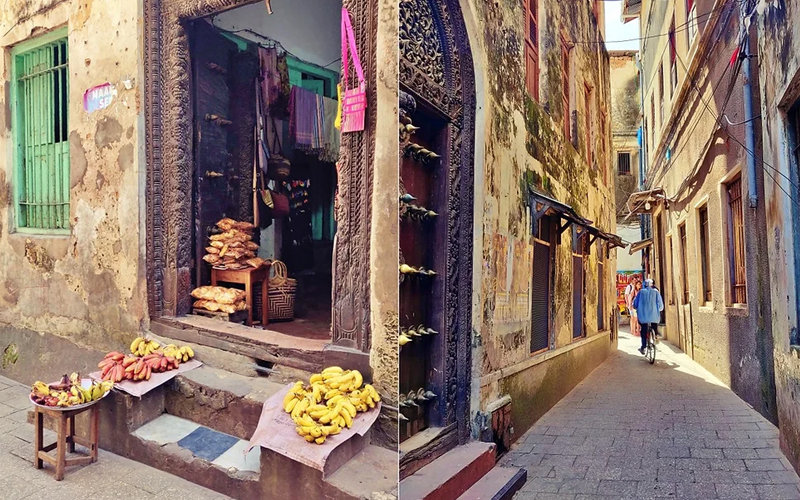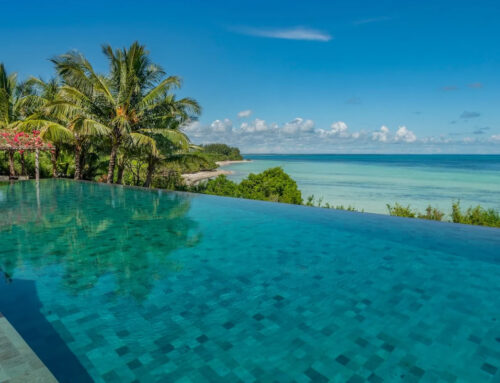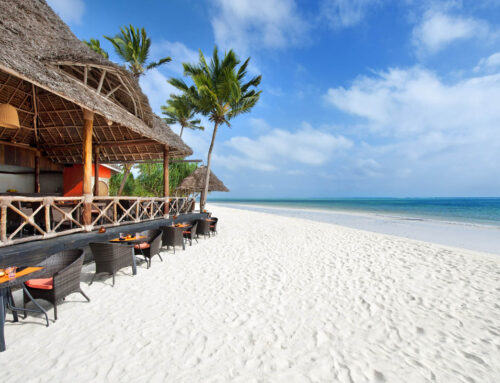Zanzibar, the jewel of the Indian Ocean, is renowned for its pristine beaches, rich history, and vibrant culture. While many travelers aim to visit during the dry seasons, the rainy seasons also offer unique experiences and opportunities. Understanding the nuances of Zanzibar’s rainy seasons can help you plan a memorable and enjoyable trip. This guide will delve into everything you need to know about visiting Zanzibar during its rainy periods, from the weather patterns to activities and travel tips.
Understanding Zanzibar’s Rainy Seasons
- The Long Rains (March to May)
- Weather Overview: The long rains, known locally as the “Masika” season, occur from March to May. This period is characterized by heavy, frequent downpours, high humidity, and warm temperatures averaging around 28°C (82°F). The rains can be intense, often resulting in lush, green landscapes.
- Tourist Impact: Due to the heavy rains, this period is considered the low season for tourism. Many travelers avoid these months, leading to fewer crowds and lower prices for accommodations and tours. The island’s natural beauty is at its peak, with blooming flowers and verdant foliage.
- The Short Rains (November)
- Weather Overview: The short rains, or “Vuli” season, occur in November. These rains are less intense and more sporadic than the long rains, typically featuring brief but heavy showers followed by sunshine. Temperatures remain warm, averaging around 29°C (84°F).
- Tourist Impact: November sees a moderate decrease in tourist numbers. The rains are less disruptive, making this a shoulder season. Prices for accommodations and activities are often lower than during the peak season, and the weather remains pleasant for most outdoor activities.
Advantages of Visiting During the Rainy Seasons
- Lower Prices and Fewer Crowds: One of the main advantages of visiting Zanzibar during the rainy season is the significant drop in prices. Accommodations, flights, and tours often offer discounts to attract travelers. Additionally, the reduced number of tourists means less crowded beaches, attractions, and restaurants, providing a more peaceful and intimate experience.
- Lush Landscapes: The rains transform Zanzibar’s landscapes into a lush, green paradise. The island’s flora thrives, creating a vibrant and picturesque environment. This is an excellent time for nature lovers and photographers to capture the island’s natural beauty at its finest.
- Unique Wildlife Experiences: The rainy seasons can offer unique wildlife viewing opportunities. The lush vegetation attracts various bird species, making it a great time for bird watchers. The Jozani Forest, home to the rare red colobus monkeys, is particularly stunning during this time.
Activities During the Rainy Seasons
- Exploring Stone Town: Stone Town, Zanzibar’s historic heart, is a UNESCO World Heritage site filled with winding alleys, bustling markets, and historic buildings. The short bursts of rain are usually followed by sunshine, making it a perfect time to explore the cultural and architectural treasures of this ancient city. Visit the House of Wonders, the Old Fort, and the Sultan’s Palace Museum to learn about Zanzibar’s rich history.
- Spice Tours: Zanzibar is famously known as the “Spice Island,” and a spice tour is a must-do activity. The rains enhance the aromatic scent of spices like cloves, nutmeg, and cinnamon, providing an immersive sensory experience. Tours often include a walk through spice farms, learning about the cultivation and uses of various spices, and tasting fresh fruits and spices straight from the farm.
- Beach Walks and Relaxation: While heavy rain might deter beach activities, the brief showers during the short rainy season often leave ample time for beach relaxation. The beaches of Nungwi, Kendwa, and Paje are less crowded, allowing you to enjoy serene walks along the shore, beachcombing, and the occasional swim when the sun comes out.
- Dhow Cruises and Sunset Views: A traditional dhow cruise is a fantastic way to experience Zanzibar’s coastline, even during the rainy season. The rain can add a mystical quality to the ocean views, and the sunsets after a rainstorm are often spectacular, with vibrant colors lighting up the sky.
Travel Tips for the Rainy Seasons
- Packing Essentials: When traveling to Zanzibar during the rainy seasons, packing the right essentials is crucial. Include lightweight, breathable clothing, a waterproof jacket, and comfortable walking shoes. Don’t forget insect repellent, as mosquitoes can be more prevalent during these times. A reusable water bottle and sunscreen are also essential.
- Flexible Itinerary: Flexibility is key when traveling during the rainy seasons. The weather can be unpredictable, so having a flexible itinerary allows you to adapt your plans based on the conditions. Include indoor activities such as visiting museums, attending cultural performances, and enjoying local cuisine at various restaurants.
- Health Precautions: It’s important to take health precautions when traveling during the rainy seasons. Drink bottled water, avoid ice in drinks, and eat at reputable establishments to prevent waterborne illnesses. Consult your doctor about necessary vaccinations, such as those for hepatitis A, typhoid, and yellow fever, and consider carrying a basic first aid kit.
- Choosing the Right Accommodations: Opt for accommodations that are well-prepared for the rainy season. Look for places with good drainage systems, covered outdoor areas, and activities that can be enjoyed indoors. Reading reviews and checking the facilities in advance can ensure a comfortable stay despite the weather.
Visiting Zanzibar during the rainy season can be a unique and rewarding experience. With fewer crowds, lower prices, and lush, green landscapes, you can enjoy a different side of this beautiful island. By planning and staying flexible, you can make the most of your trip, exploring Zanzibar’s cultural heritage, natural beauty, and vibrant life. Whether you’re strolling through Stone Town, savoring the scents of a spice tour, or simply relaxing on a tranquil beach, Zanzibar’s rainy seasons offer a magical and memorable adventure.
FAQs
Is it worth visiting Zanzibar during the rainy season?
Yes, visiting Zanzibar during the rainy seasons can be worthwhile due to lower prices, fewer tourists, and the island’s lush, green landscapes. While some outdoor activities might be limited, there are still plenty of indoor and cultural experiences to enjoy.
What should I pack for a trip to Zanzibar during the rainy season?
Pack lightweight, breathable clothing, a waterproof jacket, comfortable walking shoes, insect repellent, sunscreen, and a reusable water bottle. It’s also advisable to bring any necessary medications and a basic first aid kit.
Are there any specific health precautions to take during the rainy season?
Yes, drink bottled water, avoid ice in drinks, and eat at reputable establishments to avoid waterborne illnesses. Consult your doctor about vaccinations for hepatitis A, typhoid, and yellow fever, and consider carrying a basic first aid kit.
Can I still enjoy beach activities during the rainy season?
While heavy rain might limit some beach activities, the brief showers during the short rainy season often leave plenty of time for beach relaxation, walks, and swimming when the sun comes out.
How can I make the most of my trip during the rainy season?
Stay flexible with your itinerary, include indoor activities, and choose accommodations that are well-prepared for the rainy season. Enjoy cultural experiences, explore historic sites, and take part in activities like spice tours and dhow cruises to make the most of your trip.
For comprehensive information on climbing Kilimanjaro and exploring Tanzania’s renowned national parks and game reserves, explore the following topics on our page:
– Kilimanjaro Climbing
– Ruaha National Park
– Selous Game Reserve
– Serengeti National Park
Discover detailed insights and tips to plan your adventure and make the most of your experience in these breathtaking locations.







Leave A Comment